From streamlining the adoption process to save staff time, improve adopters’ experience and increase positive outcomes by 300% (with no increase in returns!), to introducing innovative programming that welcomes community members and promotes fear-free, connection-driven culture among shelter teams, your peers from California and beyond share what they’ve learned.

Here are some of our absolute favorite resources at the moment from around the web.
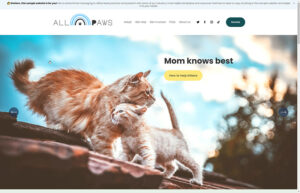
Your website is likely to be the first place people in your community go when looking for information about you. Are you making the most of that opportunity to help people before they even reach your doors?
We’ve created a sample website that includes language you can copy, adapt to your own needs and paste into your shelter’s website. Now available in Spanish!
Cal4All Calls occur on the first and third Tuesday of each month. Below you can find recordings of the most recent calls. Click the View All Recordings button to see a list of all of the call recordings.
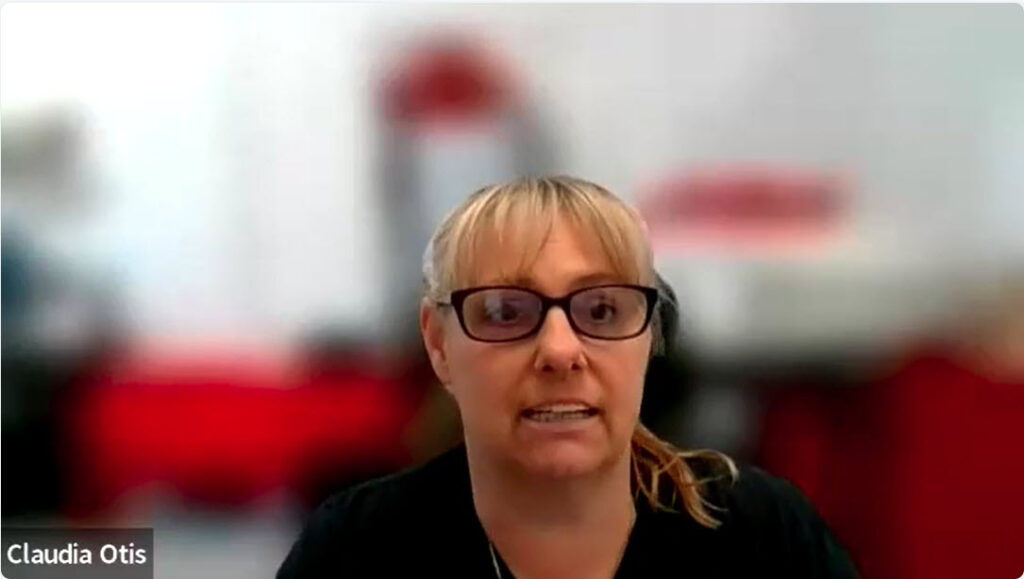
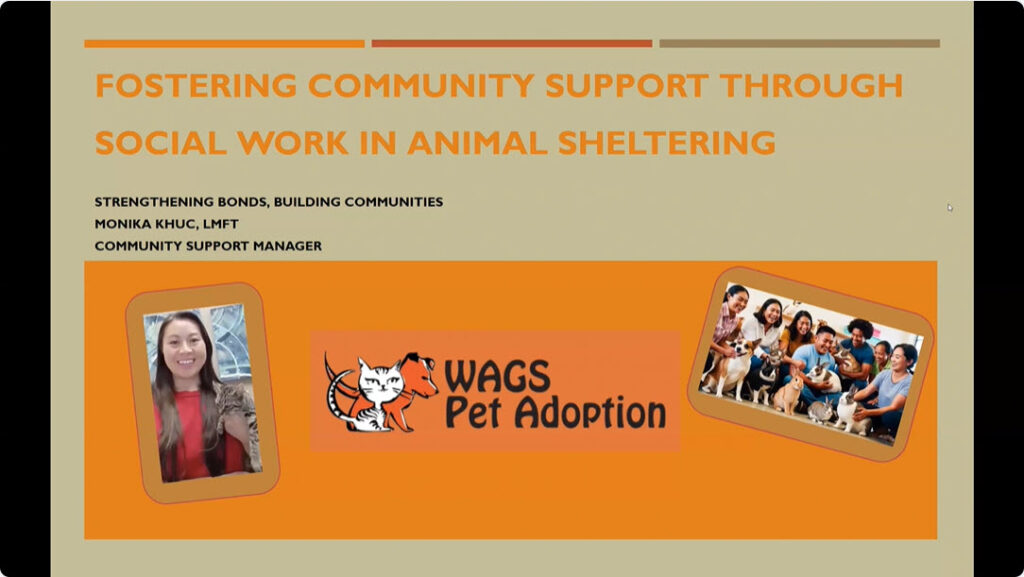
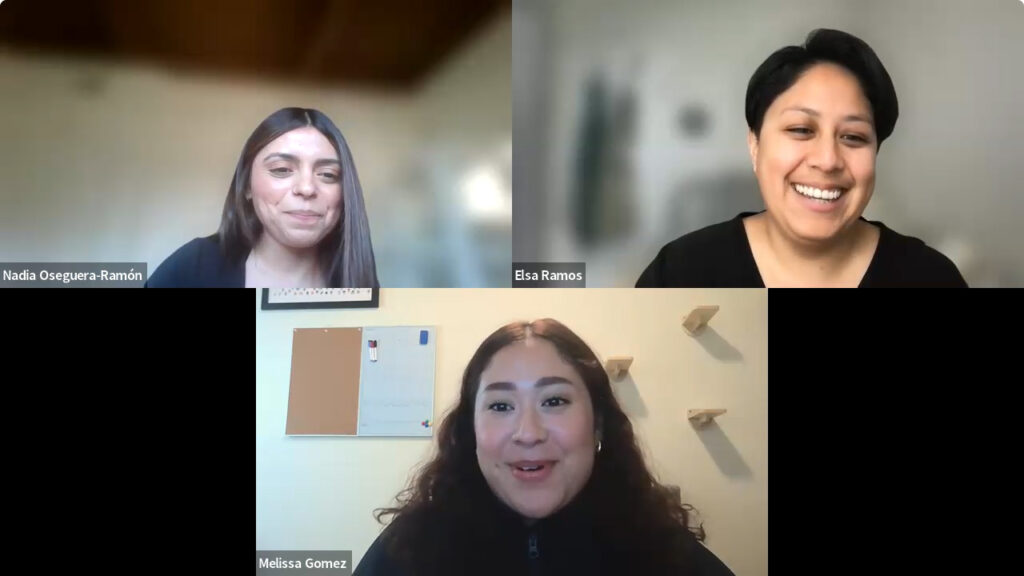
In this series of four dynamic roundtable conversations, frontline workers leading change across California and the country will highlight collaborative approaches to removing barriers that come between people and pets and dish on creative solutions they’re implementing now to ensure pets spend more nights at home, not in the shelter.
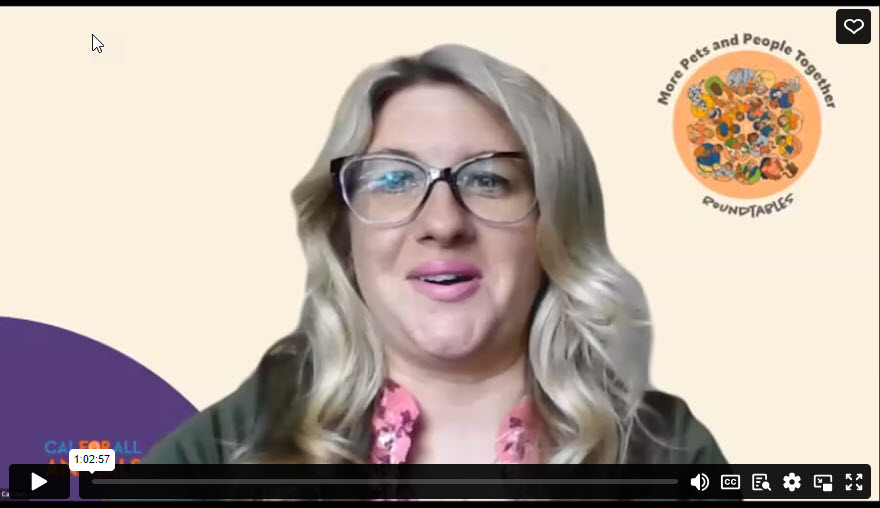

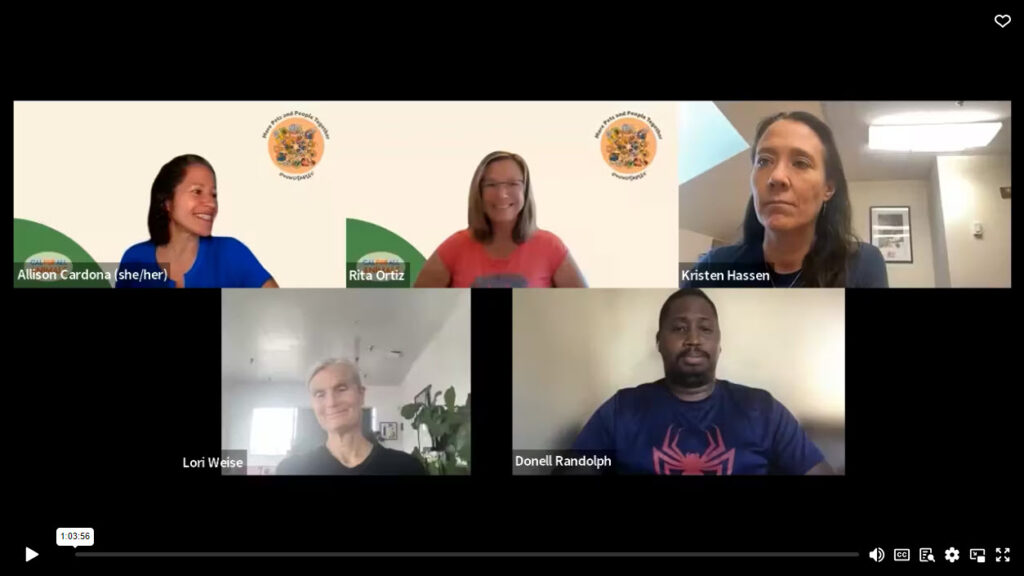
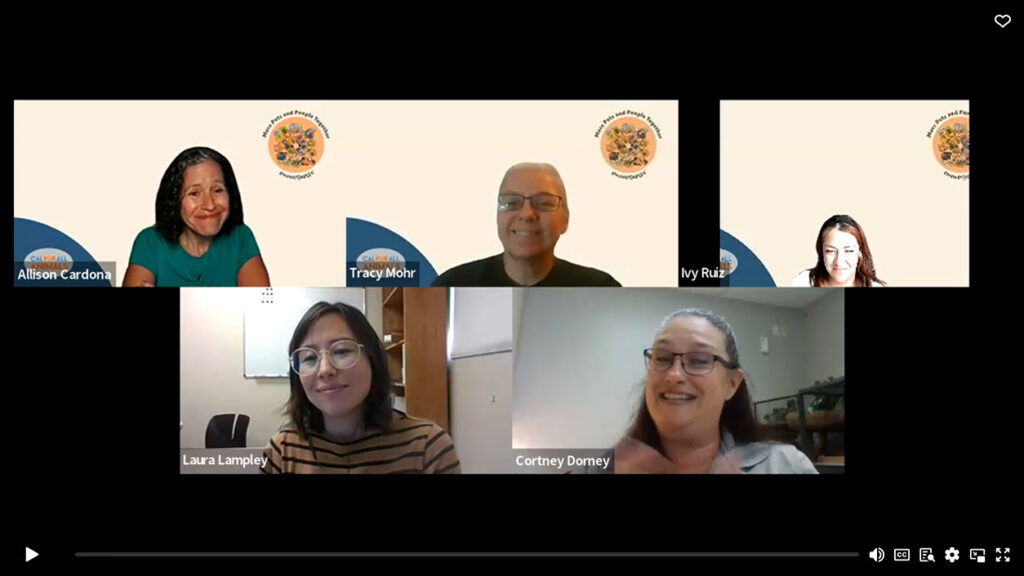
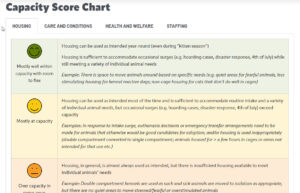
This chart helps you identify if (and if so, how much) you’re over capacity in the areas of Housing, Care and Conditions, Health and Welfare, and Staffing.
Keep up-to-date on everything going on in the California for All Animals program, including new grants and courses.
© 2025 UC Davis Koret Shelter Medicine Program